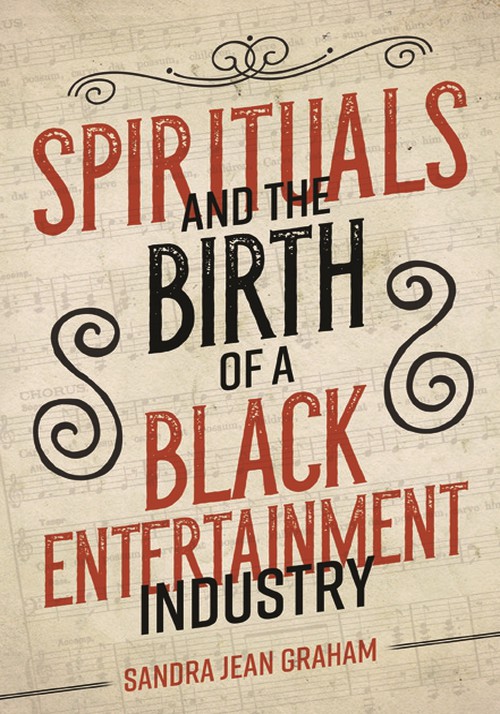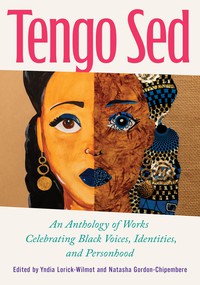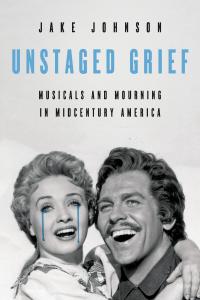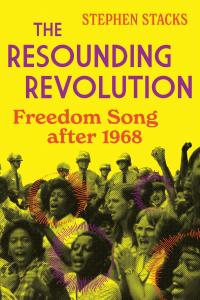
Spirituals and the Birth of a Black Entertainment Industry
Cloth: 03/19/2018
About the Book
Spirituals performed by jubilee troupes became a sensation in post–Civil War America. First brought to the stage by choral ensembles like the Fisk Jubilee Singers, spirituals anchored a wide range of late nineteenth-century entertainments, including minstrelsy, variety, and plays by both black and white companies.In the first book-length treatment of postbellum spirituals in theatrical entertainments, Sandra Jean Graham mines a trove of resources to chart the spiritual’s journey from the private lives of slaves to the concert stage. Graham navigates the conflicting agendas of those who, in adapting spirituals for their own ends, sold conceptions of racial identity to their patrons. In so doing they laid the foundation for a black entertainment industry whose artistic, financial, and cultural practices extended into the twentieth century.CUSTOM_DIV
* Publication of this book is supported by the AMS 75 PAYS Endowment of the American Musicological Society, funded in part by the National Endowment for the Humanities and the Andrew W. Mellon Foundation; by the Babson Faculty Research Fund; and by a grant from the H. Earle Johnson Fund of the Society for American Music.
About the Author
Sandra Jean Graham is an associate professor of music at Babson College.Reviews
"A pleasure to read, the book weaves meticulous research into an engaging narrative that vividly enriches understanding of postbellum American music and theater. Highly recommended." --Choice"[A] one-of-a-kind title . . . Many volumes address spirituals themselves, but few detail the actual exponents of this important African American tradition in such a refreshingly disarming way."--Library Journal
"This book is recommended to anyone with an interest in American folk and popular music, and it should provoke many followers-up studies that explore its themes in even greater depth as well as their extensions into the twentieth century." --Journal of Folklore Research
"Music historians will find Spirituals and the Birth of a Black Entertainment Industry fascinating because instead of rehashing the already well-researched lyric import of the spirituals, Graham looks at the art form as the spark that ignited an entertainment industry." --ARSC Journal
"A detailed and valuable genealogy of the spiritual." --The Journal of Southern History
"Graham proves an industry was built on and inspired by the specific cultural context and contributions of Black people. . . . Spirituals and the Birth of a Black Entertainment Industry is compulsory reading for all who wish to expand their knowledge on Black contributions to music, art, and entertainment." --Transposition
Blurbs
"Sandra Graham breaks new ground in her nuanced examination of the white-controlled spiritual or jubilee industry, and of claims for musical and cultural authenticity by black college and independent jubilee groups, as well as white and black performers of blackface minstrelsy, American folk music, and European classical traditions."--Portia K. Maultsby, coeditor of Issues in African American Music: Power, Gender, Race, Representation and African American Music: An Introduction, second edition
"A detailed, cogent, and fascinating history of the popularization of Negro spirituals [that is] thoroughly documented and covers a truly vast range of information. One of the especially distinctive features of Graham's approach is its careful consideration of musical elements and how they figure in defining objects under study."--Thomas L. Riis, author of Frank Loesser
Awards
• A Choice Outstanding Title, 2018• Music in American Culture Award, American Musicological Society, 2019
Supplemental Material
Web Table 4.1. Original Hampton Institute Singers, 1873, directed by Thomas P. Fenner
Web Table 4.2. Personnel of the original Tennesseans, formed 1873, directed by John Wesley Donavin
Web Table 4.3. Spirituals, hymns, and parlor songs from which Donavin's Tennesseans selected their concert repertory, ca. end of 1875 (from undated program booklet, University of Alabama Libraries, Tuscaloosa)
Web Table 4.4. Biographical Dictionary of Jubilee Concert Troupes
Web Recording 3.1. Excerpt from "Roll, Jordan, Roll" as recorded by a Fisk Jubilee Quartet in 1909. Singers: John Wesley Work II, first tenor; James Andrew Myers, second tenor; Alfred Garfield King, first bass; and Noah Walker Ryder, second bass. From Fisk Jubilee Singers: In Chronological Order, vol. 1, 1909–1911 (Vienna: Document Records DOCD-5533).
![]() Quicktime mp4 (752 KB)
Quicktime mp4 (752 KB) ![]() Windows wav (3.3 MB)
Windows wav (3.3 MB)
Web Recording 3.2. Excerpt from "Roll, Jordan, Roll" as recorded by Jim Europe's Singing Serenaders, a male chorus, in 1919. From The Earliest Negro Vocal Groups, vol. 2, 1893–1922 (Vienna: Document Records DOCD-5288).
![]() Quicktime mp4 (750 KB)
Quicktime mp4 (750 KB) ![]() Windows wav (3.4 MB)
Windows wav (3.4 MB)
Web Recording 4.1. Excerpt from "The Great Camp Meeting" as recorded by a Fisk Jubilee Quartet in 1916. Singers: John Wesley Work II and James Andrew Myers, tenors; J. Everett Harris, baritone; and Lemuel L. Foster, bass. From Fisk Jubilee Singers, vol. 2, 1915–1920 (Vienna: Document Records DOCD-5534).
![]() Quicktime mp4 (1.8 MB)
Quicktime mp4 (1.8 MB) ![]() Windows wav (8 MB)
Windows wav (8 MB)
Web Recording 4.2. Excerpt from "Great Camp Meeting" as recorded by the Southland Jubilee Singers in 1921. The repeat of the opening chorus has been omitted for this example. From Earliest Negro Vocal Groups, vol. 4, 1921–1924 (Vienna: Document Records DOCD-5531).
![]() Quicktime mp4 (2.5 MB)
Quicktime mp4 (2.5 MB) ![]() Windows wav (11.2 MB)
Windows wav (11.2 MB)
Web Recording 6.1. Excerpt from the commercial spiritual "De Gospel Train Am Coming" as recorded by Harry C. Browne with the Peerless Quartet (white) in 1917 (composer unknown). Browne recorded numerous other commercial spirituals included on this CD, such as "Keep in de Middle ob de Road," "Climb Up Ye Chillun, Climb," and "Balm of Gilead." From Harry C. Browne: Early Minstrel Songs, Recorded 1916–1923 (British Archives of Country Music).
![]() Quicktime mp4 (2.4 MB)
Quicktime mp4 (2.4 MB) ![]() Windows wav (10.7 MB)
Windows wav (10.7 MB)
Web Recording 6.2. Verse and chorus of James Stewart's commercial spiritual "Angel Gabriel" as recorded by Harry C. Browne in 1916. From Harry C. Browne: Early Minstrel Songs, Recorded 1916–1923 (British Archives of Country Music).
![]() Quicktime mp4 (2.4 MB)
Quicktime mp4 (2.4 MB) ![]() Windows wav (10.6 MB)
Windows wav (10.6 MB)











